Collaborating with student researchers, Hyojin Im leads an inclusive approach to reexamining refugee health and mental health
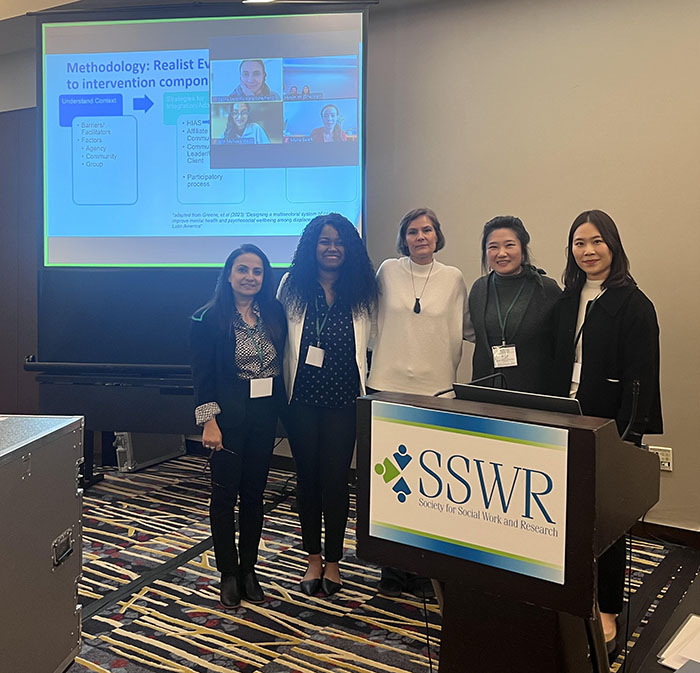
When Hyojin Im, Ph.D., convened a symposium at the Society for Social Work and Research 2024 conference on refugee health and mental health, the goal was to examine critical systems that serve these groups and to emphasize the role of Community-Based Participatory Research.
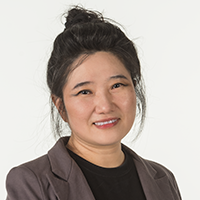
“CBPR is a collaborative ethos that involves direct engagement with refugee communities as active research partners,” says Dr. Im, an associate professor at the VCU School of Social Work.
A collaborative approach also extended to how Dr. Im included four social work Ph.D. students and one M.S.W. student in three research projects featured at the conference as part of the symposium, “A Critical Systems Approach to Refugee Health and Mental Health Research.” Working with Dr. Im were doctoral students Nicole Campbell, Seon “Sunny” Kim, Muna Saleh and Reem Shawkat and master’s student Ann Malluwa Wadu.
Their presentations were:
- “Embodiment of Structural Vulnerability: Complex Illness Experiences of Somali Refugee Women in Displacement”: Saleh and Im, along with Rupa Khetarpal of Rutgers University
- “Exploring Multilevel Factors in the Effectiveness and Implementation of Community-Based Mental Health and Psychosocial Support Groups for Refugee Newcomers”: Kim, Campbell, Wadu and Im, along with Sasha Verbillis-Kolp of Portland University and Sarmaya Mustafayeva, Annie Bonz and Allicia Wrenn of HIAS, a refugee-serving organization based in Maryland.
- “Health through a New Lens: Photovoice Exploration of Bhutanese Refugee Newcomers’ Perspectives on Healthy Living in the U.S.”: Campbell, Wadu, Shawkat and Im.
A fourth presentation, “Continuity of Care, Self-Sufficiency, and Wellness Among Asylees in the U.S.: A Qualitative Case Study,” featured researchers from Empire State College and Rutgers.
As an example of the CBPR approach, Dr. Im notes that “by employing photovoice methods, our refugee community participants can express and document their experiences through photography, offering insights into their world and co-producing knowledge on refugee well-being. Another study, utilizing multilevel modeling of program evaluation data from 11 states, showcases community-based capacity building and mental health support groups in complex settings, highlighting evidence-based, community-informed strategies for effective and culturally responsive interventions.
“This approach ensures our research is grounded in real-world contexts, directly addressing the needs and challenges of refugee communities and informing policy and practice within the community of practice. … We’re creating research that is not only about refugees but also with them, ensuring that our work is collaborative, inclusive and impactful.”
Dr. Im says it’s crucial to provide opportunities for student researchers on the biggest stages.
“It’s a critical platform for academic growth and real-world impact for my students, as it offers an opportunity to guide and collaborate with students in conducting meaningful research,” she says. “By involving them in conferences like SSWR, we recognize their work and advocate for the inclusion of new, fresh voices in academic discourse.
“Guiding the students through research design, data collection, analysis and writing is about nurturing critical thinking, scholarly inquiry and ethical practices. This process includes working with students as co-researchers and collaborators, regardless of their academic stage, creating a mutual learning experience where we challenge assumptions and contribute diverse perspectives.”
Students shared their perspectives on being part of the research collaboration:
Nicole Campbell
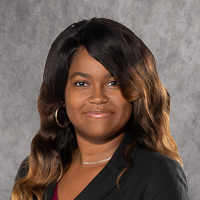
Research impact: “Such research provides valuable insights into understanding the complex interplay of factors influencing the well-being of refugees, including exposure to trauma, acculturation stress, access to healthcare and social support systems. Research in this area allows for deeper understanding of the societal implications of refugee health, informing policies and practices aimed at promoting inclusivity, equity and resilience in communities hosting displaced populations.
“Additionally, research in this area provides insight into practice needs that researchers can help develop such as evidence-based interventions tailored to the unique needs of refugee communities, thereby enhancing their health outcomes and overall quality of life. … Continued investment in research on refugee and immigrant health and mental well-being is essential for promoting social justice, equity and dignity for all individuals affected by displacement.”
Seon “Sunny” Kim
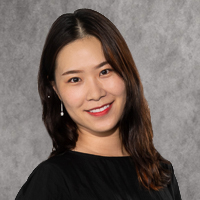
Collaborating as a student researcher: “The presentations underscore our school’s expertise and commitment to addressing intricate societal issues. Through this collaboration, I had the opportunity to interact with professors and fellow students from diverse academic backgrounds, enriching my learning experience. This enhances my potential for future independent research and provides valuable insights for effective collaboration with other researchers. Moreover, examining my peers’ research allows me to delve into new ideas, methodologies, and best practices in the field.
“Highlighting our collaboration at SSWR showcases our collective expertise and empowers students to make meaningful contributions to the field of refugee health. This experience fortifies my research skills for future independent projects and serves as a valuable learning opportunity for collaborative research with other scholars.”
Muna Saleh
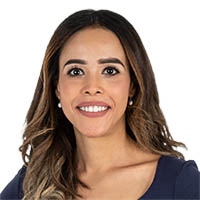
Importance of the research focus: “The number of forcibly displaced persons globally is at the highest it’s ever been in recent times, and it is projected to continue to grow as a result of ongoing political/civil conflicts and climate change. Unfortunately, the growing need to address forced displacement has not coincided with an adequate and sustained global and regional response, propelling many displaced persons to live in a state of precarity.
“Along with facing profound stressors across the migration phases, forced displacement is also notable for its health effects, leaving many grappling with significant health challenges, as well as its contribution to growing health disparities for affected populations. These social vulnerabilities require us all, across disciplines, to develop, plan and implement effective interventions to improve the lives of refugees, regardless of where they may be in their migration journey.”
Reem Shawkat
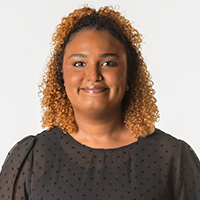
Collaborating as a student researcher: “What I found most exciting was the intentional inclusion of students and professionals. Everyone shared a collaborative spirit which added a certain level of ease to the overall symposium organization.”
Research impact: “I think the qualitative findings across the studies that collected this kind of data demonstrated the power of hearing from the communities we work with firsthand. Sometimes if we strictly analyze quantitative data we might miss some critical pieces of the big picture. For example, in our presentation we found that spirituality and having the opportunity to be in community often came up as factors that shaped participants’ definition of healthy living. So we quickly realized that a strictly medicalized understanding of health was only a small part of well-being.”
Ann Malluwa Wadu
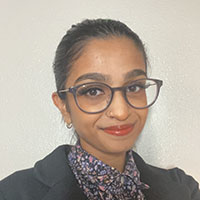
Collaborating as a student researcher: As a master’s student it has been very exciting to have the opportunity to collaborate on a research project with higher level faculty and Ph.D. students. I think having such a diverse team in terms of education and training level has been beneficial, as we can all contribute to our own areas of knowledge. … I feel better prepared to enter the world of academia as an aspiring Ph.D. student in the future.”
Research impact: “The findings from our work can provide recommendations for clinicians in the field of social work and beyond to improve care outcomes for these fast-growing communities in our local region. … My hope is that our research outcomes will lead to wider policy changes within the DMV (D.C., Maryland and Virginia) region because we are such a diverse region with a large and growing refugee and migrant community.”
Categories Faculty and staff, Publications, Research, Students